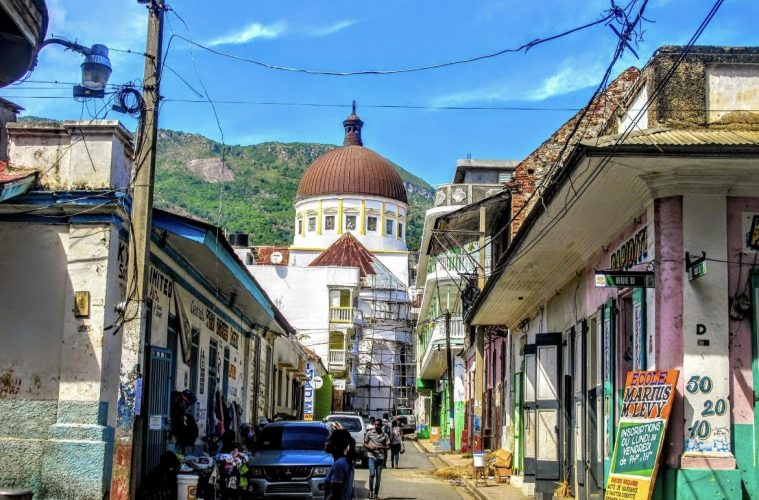The recent assassination of Haitian President Jovenel Moïse on July 7, and the nationwide outrage, sorrow and uprisings leading up to this shocking death, are some of the many indicators of the political, psychological and socioeconomic turmoil Haiti has been burdened with for decades. With a few academic books and newspaper articles, it’s easy for some to believe that they are somewhat aware of the country’s collective history of corruption, poverty and rebellion. The stories that are often not seen, however, are the stories of individuals, including mothers, children, educators and other civilians living in Haiti, who wake up and fall asleep surrounded by fire, gunpowder and teargas. What do their daily lives look like? In the midst of their turbulent reality, how do they experience seemingly mundane activities, like getting groceries, going to school, clocking into work, preparing dinner?
Lespwa fè viv (Hope makes one live) is a renowned Haitian Creole proverb that summarizes the very thing that has contributed to the resilience of the citizens of Haiti. Hope. Many people in Haiti find hope through their religion and their church community. Despite the constant dangers of gangs and corrupt police forces threatening the safety of the streets, they walk, drive or hop onto the back of camionnettes to show up to their place of worship every week, trusting that God will protect them, free them. Others find hope in the belief that they will, one day, leave the country for good and find success and peace elsewhere. Those who have access to a K-12 education view it as their ticket out, with the goal of moving to other countries to work or attend university.
Although the strength of Haitian people is admirable, perhaps even inspirational, we must acknowledge that such resilience comes with an overwhelming amount of intergenerational trauma. In the case of my family, our perseverance often leads to the suppression of our emotional and mental needs. Traumatic events are casually discussed over dinner, because they happen so often that constantly reacting with strong emotion would be far too draining. Our fears and anxieties hover over us silently while we catch up on our lives, laugh at funny memories and gossip about old acquaintances.
In other cases, the trauma imprinted by the constant violence in Haiti shows up in the form of angry, loud outcries that demand to be noticed. Schools in Haiti have reopened their doors to conduct in-person classes since August 2020. However, the riots, kidnappings and murders that have been taking place have evidently had an effect on children’s abilities to succeed academically, psychologically and socially. Many students weren’t able to come to school or complete their exams because of the active danger in their neighborhoods. Just a few days ago, my younger sister shared a story about an incident that took place during the school year, after class dismissal. A girl in the 3rd grade was arguing with her friend, who had taken an item from her. She held a pencil to her friend’s head and threatened her. “She was holding the pencil like it was a gun,” my sister narrated. “She yelled at the girl and said ‘give this back to me or I’ll kidnap you’”. This threat is a direct effect of the rampant kidnappings that have been happening in the country over the past few years.
Violence is a behavior that children learn through observation and exposure. The abuse, crime and disruption occurring near schools, homes, and community spaces have the frightening potential of having a ripple effect that may lead to the collective desensitization of violence for generations to come.
If the future of the world lies in the hands of the youth, the future of Haiti lies in the hands of children who have had to accept that death, destruction and fear are simply a part of their daily lives. The livelihood of these children lies in the hands of parents and caretakers who risk their safety every day to provide them with food and shelter. They deserve better. We, the people of Haiti—the diaspora overseas and the residents of the country—have always deserved better. Most of Haiti’s issues undeniably exist in correlation to one another. The lack of access to basic necessities like safety, healthcare, education and employment, and the harmful deeds of corrupt leaders and duplicitous charities, have contributed to the many catastrophic incidents that have plagued the country.
Many of us are asking ourselves how, when and if there will ever be an end to this painful reality. And yet, the people of Haiti are persevering, as they always have. They continue to find joy and comfort through family and community, through celebratory dinners and empowering hymns. Agony and hope continue to be the two fighting forces on this little island, which, as the first nation to free itself from slavery and colonialism, has long existed as an example of great strength and tenacity.




